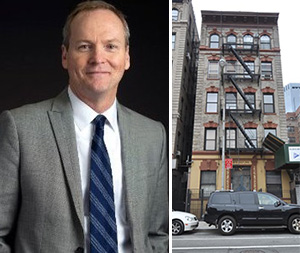Trending
DOB fine treats rental building as hotel because of Airbnb sublet: lawsuit
Landlords faced additional fines related to that status

UPDATED: 4:00 p.m. Jan 12: Landlords beware. Not only can a tenant’s illegal Airbnb sublet draw fines from the city, it can lead to your rental building being treated as a hotel, with all the attendant requirements.
That’s what happened at 357 West 54th Street in Midtown, according to a new lawsuit filed by landlords Ben and Herman Schulman against one of their tenants, Natalya Bogatyuk.
In May, a Department of Buildings inspector found that tenants at the five-story, 21-unit building, including Bogatyuk, were illegally renting their apartments through Airbnb and similar services.
A court issued a series of fines to the landlords, totaling $45,000, according to the complaint.
But the inspector also concluded that the units were being occupied on a “transient” basis, thus exposing the Class A, permanent residential property to rules that apply to Class B properties, hotels.
That decision meant additional requirements for the landlords, such as maintaining a more comprehensive fire alarm system and providing a second means of egress. Finding these requirements unmet, the court imposed an additional $16,250 in fines, according to the suit.
The Schulman’s are seeking damages of $250,000, plus another $50,000 to Cover Court costs.
Several other tenants were renting their units as well, according to the suit. The landlords filed suit against another tenant, Madalina Iacob, last month, seeking the same amount of money.
The Department of Buildings didn’t immediately return a request for comment.
Airbnb is fighting a package of new City Council bills seeking to regulate its service, including one that would significantly raise the fine for illegal rentals.
The firm is also reportedly in talks with three major national landlords – Equity Residential, AvalonBay Communities and Camden Property Trust – over a possible revenue sharing arrangement for tenants’ rentals.
Clarification: A previous version of this story suggested the the actual legal status of the building was changed based on the DOB inspector’s finding. Actually, the inspector merely found that the building was being used as a transient residence. Officially changing the building’s legal status is a complex, involved process.




